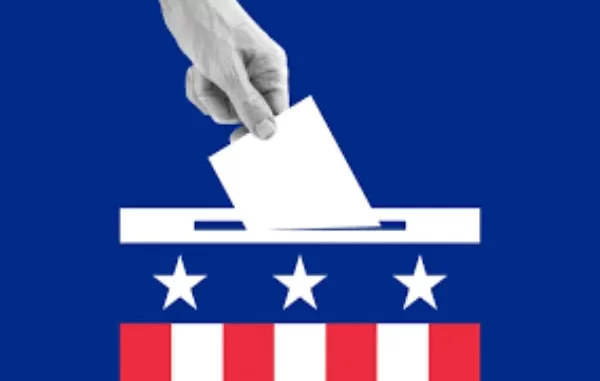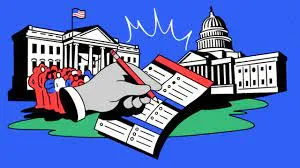
The political parties in a nation have a significant impact on the outcome of an election. Political parties are the driving force behind a nation’s electoral process and can influence the outcome of the election in a variety of ways. Political parties are responsible for organizing and mobilizing their supporters, recruiting and financing candidates, setting policy platforms, and engaging in political messaging.
By understanding the different ways in which political parties can influence the outcome of an election, we can better understand the dynamics of the electoral process. This article seeks to explain the impact of political parties on elections and how they can shape the outcomes.
Exploring the Role of Political Parties in Shaping Election Results

Political parties play an integral role in shaping election results. While the individual candidates on the ballot often receive more attention from the public, it is the parties that back them that ultimately determine how the election turns out. Political parties provide a platform for candidates to run on, and the policies of the party can help swing an election in their favor.
Political parties serve as the primary vehicle for organizing and expressing opinion on public policy. By offering a platform for candidates to run on, they ensure that the public will hear and consider their points of view. Parties may choose to endorse certain candidates and offer them financial and organizational support, which can help them to overcome their opponents. Additionally, parties can generate enthusiasm and mobilize their supporters to get out and vote, helping to ensure that their candidate’s message is heard and understood.
Political parties also play a key role in shaping the issue agenda in an election. Parties can use their own platforms to highlight the issues that they believe are important, encouraging their supporters to focus on those issues when going to the polls. This can be particularly powerful when the public is divided on a certain issue, as the party may be able to convince a large portion of the electorate to support their candidate on that issue.
Finally, political parties have the power to influence the outcome of elections through their endorsements of particular candidates. When a party endorses a candidate, it signals to the public that the party believes that the candidate is the best choice and will represent their interests. This can be enough to sway a large portion of the electorate in favor of the endorsed candidate.
In conclusion, political parties play a major role in shaping election results. By providing a platform for candidates to run on, mobilizing their supporters, setting the issue agenda, and endorsing particular candidates, they have the power to influence the outcome of an election.
How Political Parties Leverage Their Platforms to Win Elections
Political parties have long recognized the importance of leveraging their platforms to win elections. By creating a platform that resonates with voters, parties can increase their chances of success at the polls. To do this, parties must craft a platform that appeals to the public’s interests and values, while also staying true to the party’s core beliefs.

The key to a successful platform is to create a narrative that speaks to the voter’s needs. Parties should be sure to focus on the issues that are important to their constituents. This may include topics such as healthcare, job creation, education, infrastructure, and the economy. Each issue should be addressed from a party-specific perspective, showing how the party intends to address the issue if elected.
In addition to addressing the issues, it’s important for parties to promote their candidates. Parties should highlight the strengths of their candidates and emphasize the experience and qualifications they bring to the table. This is a great opportunity to demonstrate how the candidate will be an effective leader for the public.
Finally, parties must be sure to communicate their platform to the public. This can be done through a variety of methods such as television ads, social media, and public appearances. Such outreach allows the party to reach a wide audience and can help them gain support.
Overall, by creating a platform that appeals to the public and promoting it effectively, parties can increase their chances of success at the polls. Through this process, parties can demonstrate why their candidates and their policies are the best choice for the public.
Analysing the Impact of Political Parties on Voter Behaviour
Political parties play a significant role in influencing voter behavior. The impact that parties have on voters is often determined by their ideologies, policies, and platforms. Parties can shape the discourse of an election by setting the agenda and defining the terms of the debate. They can also encourage people to vote for them by offering incentives and creating an environment conducive to participation. Through their actions, political parties can influence the way people view the candidates and the issues at hand, thus influencing their voting decisions.

In order to understand the impact of political parties on voter behaviour, it is important to understand how parties are organized and how they operate. Political parties are typically organized into hierarchies with a central party structure at the top that is responsible for setting the party’s agenda and policies. This central structure is then supported by regional offices, local branches, and individual members. The activities of these different branches are coordinated to promote the party’s goals and objectives.
Political parties can influence voter behaviour in a number of ways. First, parties can mobilize voters through their campaigning activities. They do this by highlighting their candidates’ qualifications and their party’s policies, drawing attention to their opponents’ shortcomings, and encouraging voter participation. Secondly, parties can shape the public discourse by providing a platform for their candidate’s views and opinions, which can be used to generate discussion and debate. Finally, parties can demonstrate their commitment to the electorate by offering incentives such as tax breaks or other financial incentives.
The impact of political parties on voter behaviour is not limited to local elections. In national elections, parties can have a significant impact on the public discourse, as they are able to reach a much larger audience due to their organizational capacity and the wide coverage of their campaigns. Similarly, in international elections, parties can influence public opinion by continuing to promote their views and policies even after the election has taken place.
In conclusion, it is clear that political parties have a significant impact on voter behaviour. They shape the public discourse, mobilize voters, and offer incentives to encourage participation. By understanding how parties are organized and how they operate, it is possible to gain a better understanding of the impact they have on the voting public.
Examining the Influence of Political Parties on Electoral Outcomes

Political parties play a major role in determining electoral outcomes in democracies. They are responsible for nominating candidates, organizing campaigns, and developing platforms that citizens can use to make informed decisions about who to vote for. It is therefore important to understand the influence that political parties have on the electoral process and how their activities can affect the results of elections.
The most obvious way in which political parties influence electoral outcomes is by nominating candidates. The selection of a party’s candidate can have a significant impact on voter turnout and the number of votes cast for the party’s candidate. In addition, the candidate’s reputation and past performance can also influence public opinion. For example, if a party’s candidate has a record of promoting popular policies, they may be more likely to receive a larger share of the vote than a candidate with a less established track record.
The platforms of political parties can also have an impact on electoral outcomes. Political parties develop policies and positions on issues that are important to their constituencies. These platforms can be used to inform voters on the party’s positions on key issues, which can help to influence their decision on which candidate to vote for. For example, a party that is perceived as being more progressive may be able to appeal to a larger portion of the electorate than a party that is seen as more conservative.
Finally, political parties are also responsible for organizing and running campaigns. The resources that a party has access to can play an important role in how successful its campaign is. Parties with more resources may be able to reach a larger portion of the electorate, which can lead to higher voter turnout and a larger share of the vote for the party’s candidate.
Political parties are a major factor in determining electoral outcomes in democracies. By nominating candidates, developing platforms, and organizing campaigns, political parties can have a significant influence on the outcome of an election. It is therefore important for voters to understand the impact that political parties have on the electoral process in order to make informed decisions when choosing who to vote for.
Understanding the Role of Political Parties in Shaping Democracy
Democracy is a form of government that is based on the principle of popular sovereignty. This means that people have the authority to select their own leaders and to make decisions on matters of public interest. Political parties play a crucial role in this process of democracy by providing a platform for political discourse, allowing citizens to voice their opinions and represent their interests.

Political parties provide a framework for citizens to organize and express their views on issues such as taxation, education, healthcare, and defense. By allowing citizens to form organized groups, they can more effectively advocate for their interests in the electoral process. Political parties also provide a way for citizens to hold elected officials accountable, as they can organize into groups to pressure representatives to act in the best interests of their constituents.
Political parties also play a role in defining the ideological boundaries of a country’s politics. By providing an ideological platform, parties can shape the public debate, influencing the direction of policymaking and creating the ideological boundaries that define a nation’s politics. This allows for a more meaningful debate on the issues, as citizens can evaluate how different parties will approach issues and decide which party best represents their views.
Finally, political parties are a key component of the democratic process as they provide a way to ensure a peaceful transition of power. By having established parties that represent different views, citizens have an avenue for peacefully expressing their dissatisfaction with the current government without resorting to violence. This allows the country to avoid civil unrest and to ensure a peaceful transfer of power.
In conclusion, political parties play an essential role in shaping democracy by providing a platform for political discourse, allowing citizens to organize and express their views, and defining the ideological boundaries of a nation’s politics. By providing these services, political parties help to ensure a peaceful transfer of power and a meaningful debate on the issues.
Overall, it is clear that political parties have a major impact on elections, from influencing the outcomes to affecting the way in which candidates campaign. Political parties are important in terms of organizing and mobilizing support, as well as providing a platform for candidates to present their ideas to the public. It is also clear that political parties play a key role in fostering debate and discussion, which helps to inform the public on important issues and encourages citizens to become involved in the electoral process. Ultimately, political parties help to shape the democratic process and to ensure that citizens are able to make informed decisions when voting.

Leave a Reply